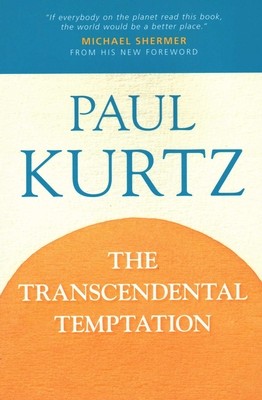
- We will send in 10–14 business days.
- Author: Paul Kurtz
- Publisher: Prometheus Books
- ISBN-10: 1616148276
- ISBN-13: 9781616148270
- Format: 15.4 x 22.8 x 3.5 cm, minkšti viršeliai
- Language: English
- SAVE -10% with code: EXTRA
Reviews
Description
In this landmark work, Paul Kurtz examines the reasons why people accept supernatural and paranormal belief systems in spite of substantial evidence to the contrary. According to Kurtz, it is because there is within the human species a deeply rooted tendency toward magical thinking-the "transcendental temptation"-which undermines critical judgment and paves the way for willful beliefs. Kurtz explores in detail the three major monotheistic religions-Judaism, Christianity, and Islam-finding striking psychological and sociological parallels between these religions, the spiritualism of the nineteenth century, and the paranormal belief systems of today. This acclaimed and controversial book includes sections on mysticism, belief in the afterlife, the existence of God, reincarnation, astrology, and ufology. Kurtz concludes by explaining and advocating rational skepticism as an antidote to belief in the transcendental.
EXTRA 10 % discount with code: EXTRA
The promotion ends in 23d.02:05:12
The discount code is valid when purchasing from 10 €. Discounts do not stack.
- Author: Paul Kurtz
- Publisher: Prometheus Books
- ISBN-10: 1616148276
- ISBN-13: 9781616148270
- Format: 15.4 x 22.8 x 3.5 cm, minkšti viršeliai
- Language: English English
In this landmark work, Paul Kurtz examines the reasons why people accept supernatural and paranormal belief systems in spite of substantial evidence to the contrary. According to Kurtz, it is because there is within the human species a deeply rooted tendency toward magical thinking-the "transcendental temptation"-which undermines critical judgment and paves the way for willful beliefs. Kurtz explores in detail the three major monotheistic religions-Judaism, Christianity, and Islam-finding striking psychological and sociological parallels between these religions, the spiritualism of the nineteenth century, and the paranormal belief systems of today. This acclaimed and controversial book includes sections on mysticism, belief in the afterlife, the existence of God, reincarnation, astrology, and ufology. Kurtz concludes by explaining and advocating rational skepticism as an antidote to belief in the transcendental.


Reviews